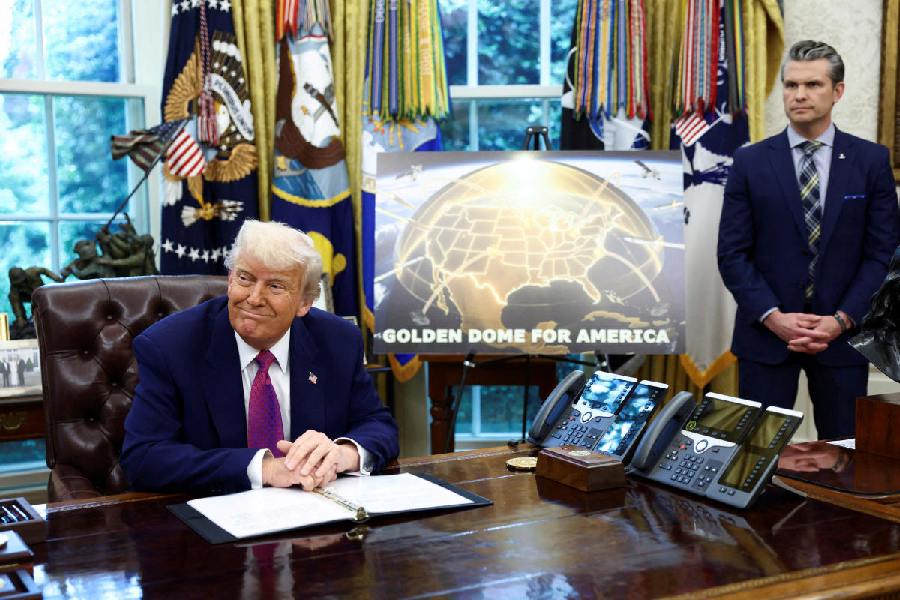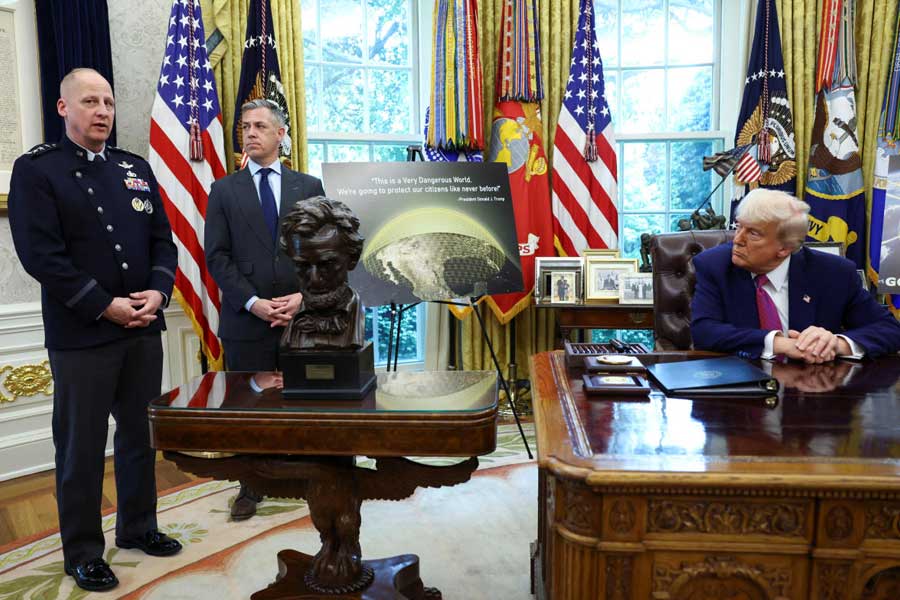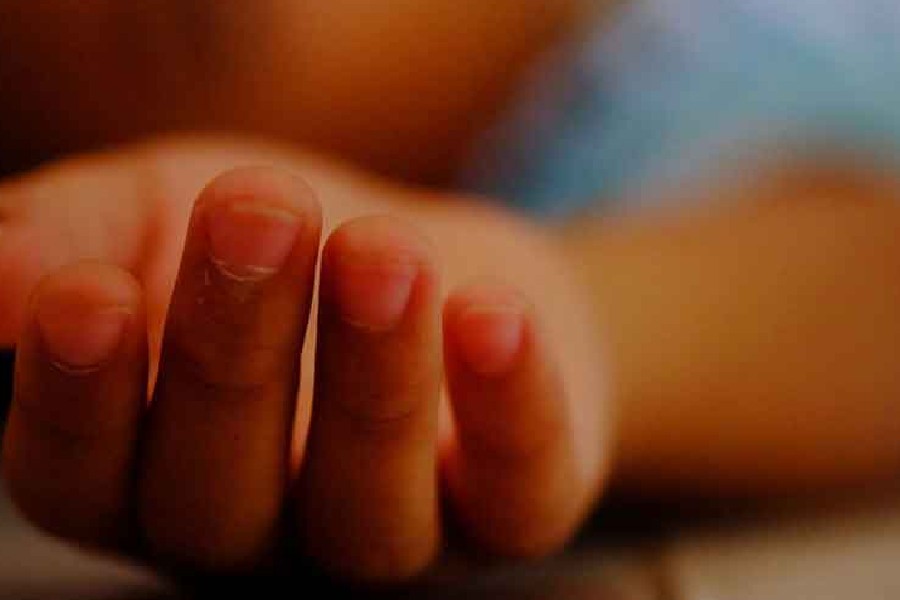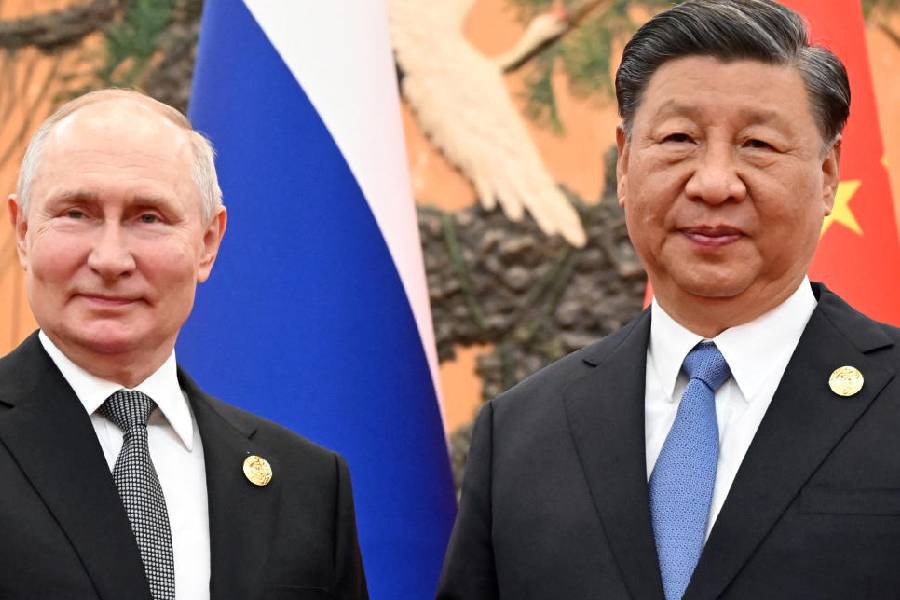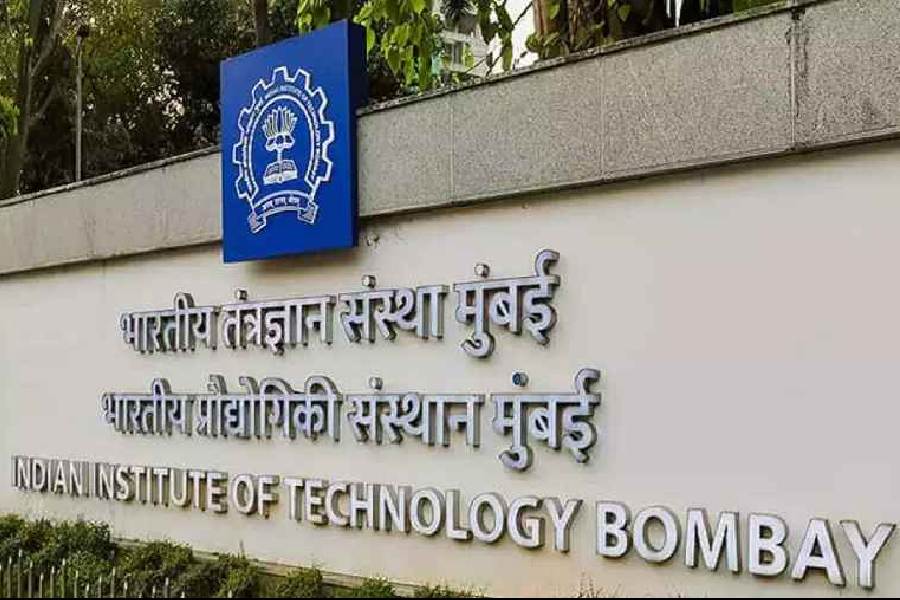China and Russia have voiced strong objections to US President Donald Trump’s announcement of a $175-billion “Golden Dome” missile defence shield, expressing deep concerns over its implications for global strategic stability and nuclear arms control.
Chinese foreign ministry spokesperson Mao Ning said Beijing is “seriously concerned” about the missile defence shield, warning that it carries “strong offensive implications.”
“The United States, in pursuing a ‘US-first’ policy, is obsessed with seeking absolute security for itself. This violates the principle that the security of all countries should not be compromised and undermines global strategic balance and stability. China is seriously concerned about this,” Mao said, reported Reuters.
Beijing further urged Washington to abandon the development of the missile shield and instead take steps to build trust among major powers, cautioning that the project increases the risks of militarisation of outer space and fuels an arms race.
Kremlin spokesperson Dmitry Peskov said that President Trump’s missile shield plans could prompt the resumption of nuclear arms control talks between Moscow and Washington in the foreseeable future.
Peskov said while it was a “sovereign matter” for the United States, many details and nuances of the project remained unclear.
Moscow also indicated that it was concerned about how the system might impact nuclear parity with the US.
“In the foreseeable future, the very course of events requires the resumption of contacts on issues of strategic stability,” Peskov said, according to Reuters.
Both Russia and the United States remain the world's largest nuclear powers. The two countries have expressed regret over the breakdown of several key arms control agreements, which once served to slow the arms race and mitigate the threat of nuclear conflict.
The United States has blamed Russia for the collapse of treaties such as the 1972 Anti-Ballistic Missile (ABM) Treaty and the 1987 Intermediate-Range Nuclear Forces (INF) Treaty. The US formally exited the INF Treaty in 2019, accusing Russia of violations — an allegation Moscow has denied. Washington also withdrew from the ABM Treaty in 2002.
“Now that the legal framework in this area has been destroyed and the validity period has expired or deliberately, let’s say, a number of documents have ceased to be valid, this base must be recreated both in the interests of our two countries and in the interests of security throughout the planet,” Peskov added.
Trump revealed on Tuesday that he had selected a design for the ambitious missile shield and compared it to Israel’s land-based Iron Dome system.
The Iron Dome is engineered to intercept short-range rockets, artillery shells, and mortars within a range of 4 to 70 kilometres from their point of launch.
The “Golden Dome” is aimed at countering perceived missile threats from China and Russia — the United States’ two biggest geopolitical rivals.
According to a Reuters report, Trump has appointed a Space Force general to lead the Golden Dome initiative, underscoring the program’s strategic and space-based ambitions.
Further technical details of the defence system remain undisclosed.

